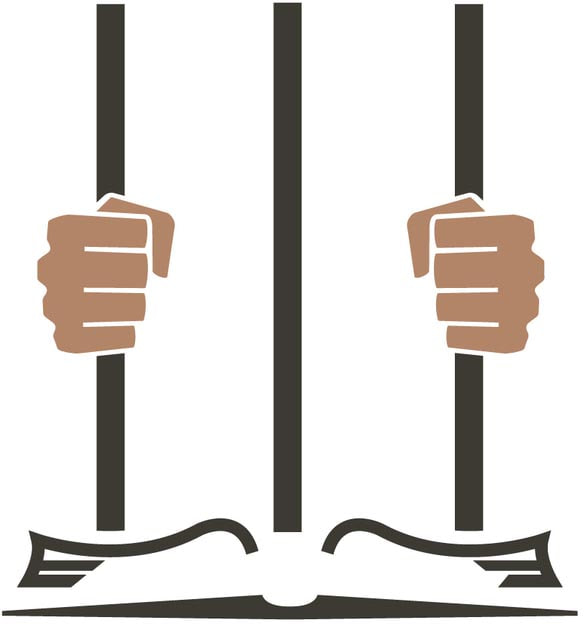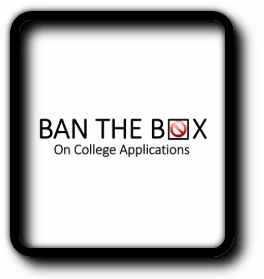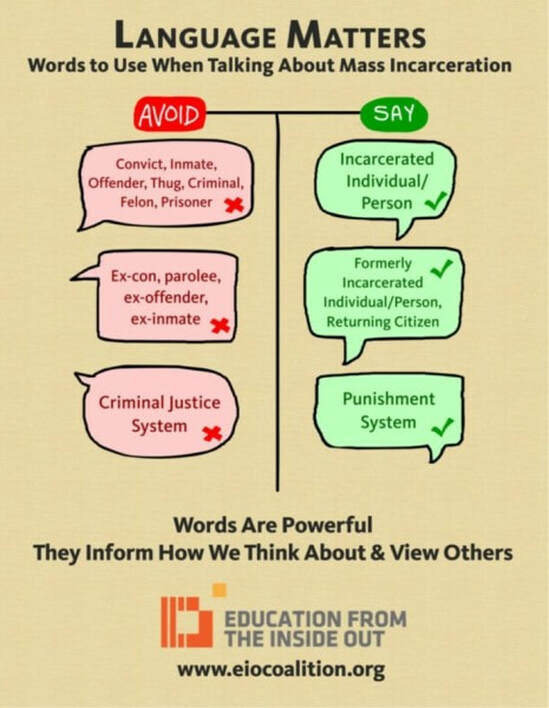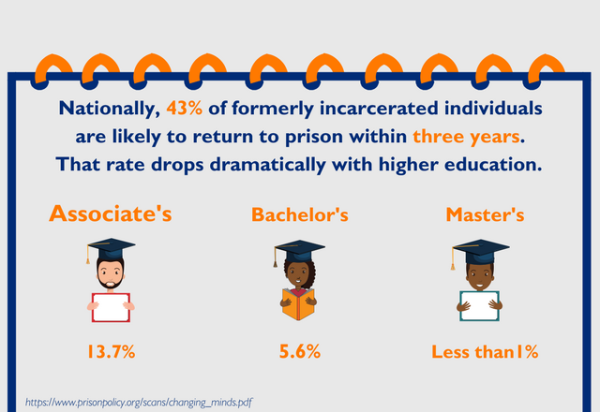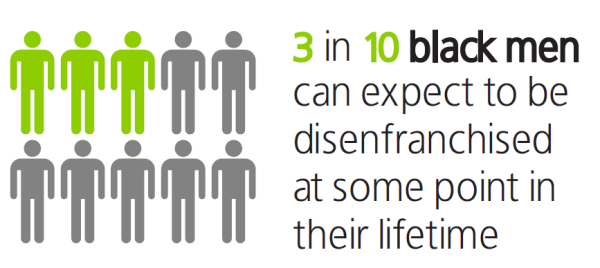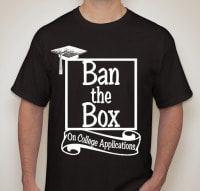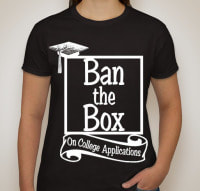A conference created by, created for, led by and driven by formerly incarcerated individuals
Make Plans to Join Us - September 9 -10th
12:00pm - 5:00pm EST
Register HERE: http://www.riseupconference.org/
Rise Up: Decolonizing Higher Education During and After Prison
September 9th, 2021 marks the 50th anniversary of the Attica prison uprising, during which hundreds of men incarcerated
at Attica banded together, after years of abuse, to take control of the facility until their demands were met. The men’s
demands were simple; better living conditions and opportunities to improve their lives. The same spirit and belief in the transformative power of positive programming can be found in people pursuing higher education while incarcerated today.
Directly impacted practitioners offer not only lived experience, but also expertise and scholarship we have honed through
academic study and training both inside and after prison.
Higher education in prison is a field that has experienced a period of rapid expansion over the last twenty years. Although
there is a lot of discussion in this field about the importance of including directly impacted people, it is rare to see spaces where those directly impacted people are leading the conversation. Many college-in-prison programs include directly impacted people as tokens on panel discussions, but rarely are they included in leadership positions. The time has come for those with lived experience to set the full agenda for the conversations we believe need to be had. While there is value in working with those who were not incarcerated as collaborators and thought partners, these conversations must be led by those affected by college in prison programs. After all, our expertise and perspectives should be strongly valued in the field, because we lived through it and thrived!
Conference objectives:
REGISTER HERE: http://www.riseupconference.org/
12:00pm - 5:00pm EST
Register HERE: http://www.riseupconference.org/
Rise Up: Decolonizing Higher Education During and After Prison
September 9th, 2021 marks the 50th anniversary of the Attica prison uprising, during which hundreds of men incarcerated
at Attica banded together, after years of abuse, to take control of the facility until their demands were met. The men’s
demands were simple; better living conditions and opportunities to improve their lives. The same spirit and belief in the transformative power of positive programming can be found in people pursuing higher education while incarcerated today.
Directly impacted practitioners offer not only lived experience, but also expertise and scholarship we have honed through
academic study and training both inside and after prison.
Higher education in prison is a field that has experienced a period of rapid expansion over the last twenty years. Although
there is a lot of discussion in this field about the importance of including directly impacted people, it is rare to see spaces where those directly impacted people are leading the conversation. Many college-in-prison programs include directly impacted people as tokens on panel discussions, but rarely are they included in leadership positions. The time has come for those with lived experience to set the full agenda for the conversations we believe need to be had. While there is value in working with those who were not incarcerated as collaborators and thought partners, these conversations must be led by those affected by college in prison programs. After all, our expertise and perspectives should be strongly valued in the field, because we lived through it and thrived!
Conference objectives:
- Prioritizing and learning from the voices of people most closely impacted by the problems our collective work is intended to solve
- Shifting power, resources, and control of the agenda to those people who have been disenfranchised and marginalized by the criminal legal system
- Recognizing and legitimizing the expertise of directly impacted scholars beyond their lived experience, and providing professional development opportunities for these scholars
- Practicing true collaboration through shared leadership and allyship
REGISTER HERE: http://www.riseupconference.org/
Our Transformative Work
Prison-to-Professionals (P2P) seeks to reach, touch, and change the lives of people with criminal convictions through advocacy, mentoring, and policy change. P2P helps inspire people with criminal convictions to excel BEYOND what society and life circumstances have set to be THE NORM. We Invest In Potential
97.5%Post-secondary Education matriculation rate
|
3.75GPA of legal system involved individuals who completed the P2P workshops
|
100+currently and formerly incarcerated men and women start the program yearly
|
350+people with convictions from across the country apply to P2P yearly
|
22Number of states with P2P Scholars or Team members
|
ban the box
ON COLLEGE APPLICATIONS
|
We share our stories regularly with local lawmakers and politicians in hopes of affecting policies around prison reform and reentry from prison. We have shared our stories with policy makers on Capitol Hill, in Maryland and Missouri courthouses, in municipal settings, and at the National Institutes of Health. We are currently helping to "Ban the Box" on college applications nationwide and to improve access to edcuation for currently and formerly incarcerated people. We are actively seeking other opportunities to impact policy.
|
Current Issues or Policies being addressed:
Contact us today to start a discussion. P2P@FromPrisonCells to Phd.Org
- Ban the Box on College Applications. Sign the Petition to pledge your support. Find out more on Maryland House Bill 694.
- First Step Act. Find out more here.
- Removing the Convictions Question from the FAFSA. Find out more here.
- Expanding Second Chance Pell. Find out more here.
Contact us today to start a discussion. P2P@FromPrisonCells to Phd.Org
Information Form
Helping Change Policy
"A 2007 study by Olszewska et al showed that there is no connection between background checks and campus safety."
Support College After Incarceration
Ban the Box on College Applications Petition
“Remove the criminal convictions question(s) from the initial application process.”
Petitioning: Maryland General Assembly, Maryland Independent College & University Assoc., and University System of Maryland.
Petitioning: Maryland General Assembly, Maryland Independent College & University Assoc., and University System of Maryland.
Demand that your school and other universities/colleges in Maryland provide an application that does not include the discriminatory "box" nor ask applicants any question(s) pertaining to past guilt or conviction of a misdemeanor, felony, or other prior offense in the initial application process.
Statistics Support College After Incarceration: The national recidivism rate (1) drops from 76% to 5.6% if an individual obtains a bachelor’s degree and below 1% with a Masters degree (2,3). Most crimes on campus are committed by people with no prior convictions (4).
Thus, as a public safety strategy, universities and colleges should be doing everything they can to promote access to higher education – not create more barriers.
Support this Petition: Job Opportunities Task Force in partnership with From Prison Cells to Phd and other organizations insist that you support “Ban the Box on College Applications.” Sign the petition here.
People make mistakes, and people deserve second chances. Unfortunately, people who have made poor decisions in the past and are trying to better themselves by pursuing higher education face a major barrier: a box that they must check disclosing their criminal history on college applications.
By requiring applicants to disclose their criminal history, universities impose an unnecessary and discriminatory barrier to education. This process reduces the applicant to the mere moment when they incurred a criminal record rather than seeing the full person with all of their interests, skills, and experiences.
Asking about criminal history on college applications is not a practice grounded in empirical evidence and does not promote public safety. Studies show that college education during or after prison helps individuals reintegrate into society and reduces the chance they will end up back in prison.
Maryland Fair Access to Education Act of 2017:
Senate Bill 543 & House Bill 694 seeks to remove the arrest/conviction question from the initial college applications. The question would still be asked later. By moving it, the applicant can be assessed on merit alone. http://mgaleg.maryland.gov/webmga/frmMain.aspx?pid=billpage&tab=subject3&id=hb0694&stab=01&ys=2017RS
1. https://csgjusticecenter.org/nrrc/facts-and-trends/
2. https://www.prisonpolicy.org/scans/changing_minds.pdf
3. http://www.communityalternatives.org/pdf/passport/Benefits-of-Higher-Ed.pdf
4. http://www.communityalternatives.org/pdf/Reconsidered-criminal-hist-recs-in-college-admissions.pdf
Statistics Support College After Incarceration: The national recidivism rate (1) drops from 76% to 5.6% if an individual obtains a bachelor’s degree and below 1% with a Masters degree (2,3). Most crimes on campus are committed by people with no prior convictions (4).
Thus, as a public safety strategy, universities and colleges should be doing everything they can to promote access to higher education – not create more barriers.
Support this Petition: Job Opportunities Task Force in partnership with From Prison Cells to Phd and other organizations insist that you support “Ban the Box on College Applications.” Sign the petition here.
People make mistakes, and people deserve second chances. Unfortunately, people who have made poor decisions in the past and are trying to better themselves by pursuing higher education face a major barrier: a box that they must check disclosing their criminal history on college applications.
By requiring applicants to disclose their criminal history, universities impose an unnecessary and discriminatory barrier to education. This process reduces the applicant to the mere moment when they incurred a criminal record rather than seeing the full person with all of their interests, skills, and experiences.
Asking about criminal history on college applications is not a practice grounded in empirical evidence and does not promote public safety. Studies show that college education during or after prison helps individuals reintegrate into society and reduces the chance they will end up back in prison.
Maryland Fair Access to Education Act of 2017:
Senate Bill 543 & House Bill 694 seeks to remove the arrest/conviction question from the initial college applications. The question would still be asked later. By moving it, the applicant can be assessed on merit alone. http://mgaleg.maryland.gov/webmga/frmMain.aspx?pid=billpage&tab=subject3&id=hb0694&stab=01&ys=2017RS
1. https://csgjusticecenter.org/nrrc/facts-and-trends/
2. https://www.prisonpolicy.org/scans/changing_minds.pdf
3. http://www.communityalternatives.org/pdf/passport/Benefits-of-Higher-Ed.pdf
4. http://www.communityalternatives.org/pdf/Reconsidered-criminal-hist-recs-in-college-admissions.pdf
Ban the Box on College Applications Support RallyDate: Saturday, October 7th, 11am - 2pm
Location: Johns Hopkins University, Beach (grass area in front of library), 3400 Charles Street Information: Support the right to education for everyone!! Join the Facebook event for updates https://goo.gl/anQ6y1 RALLY FOR JUSTICE AND EDUCATION We will gather Saturday, October 7th, to rally in support of the Maryland Fair Access to Education Act of 2017, which passed with strong bi-partisan support in the Senate and the House last legislative session, until being vetoed by Governor Hogan. In early 2018 the General Assembly will vote to override this veto, and we need your support! Featured Speakers: Maryland Policy Advocates Join us! Help spread the word and gain the support of higher education institutions in Maryland! There will be FREE food and community resources for all to enjoy. |
Reality Check: What is “the Box”
|
Access to Higher Education is a human right. It can be transformative and it:
Mass Incarceration: In the United States, the prison system has grown by over 700% since 1980 and there are currently 2.3 million people in prison (5). Mass incarceration disparately impacts people of color. Black men are seven times more likely to be incarcerated than white men (6).
Collateral Consequences: Formerly incarcerated individuals face barriers to accessing services, as well as restrictions on where they may work or live. These collateral consequences can range from denial of worker’s compensation to exclusion from public housing, and can impede successful reentry. There are more than 1,000 laws outlining the long-term consequences of criminal conviction in New York (7). See PCtP Blog here: http://fromprisoncellstophd.org/pctp-blog
On One’s Own Merit: Research shows that (of colleges surveyed) 66% screen applicants for criminal history, and private institutions are more likely to collect and use the data in admissions decisions than public and two-year institutions (8). This leads to some applicants being denied access to education based on something other than their academic qualifications.
Lack of Evidence: There is no empirical evidence demonstrating that students with criminal records pose a greater safety risk on campus than those who do not. Discouraging: Inquiry into criminal history, whatever its intent, discourages otherwise qualified people from applying (9). Asking applicants to “check the box” screens out qualified individuals. Unnecessary Hurdles: Some colleges require applicants to obtain their criminal history records at their own expense. These records contain information that has been sealed, charges that have been dismissed, or information that has otherwise been deemed legally confidential, such as Youthful Offender adjudications, which admissions officials have no legal right to view. Colleges and Universities Lack Consistent Screening Policies and Procedures Just six percent of schools responding to a survey conducted by the Center for Community Alternatives report that their admissions process is identical for applicants with and without criminal records. 47.1% of higher education institutions lack a written policy regarding the admissions of applicants with criminal records. Requirements vary by institution:
|
|
Higher Education Reduces Recidivism (10):
Nationally, 43.3% of formerly incarcerated individuals are likely to return to prison within three years of release. The recidivism rate drops dramatically with access to higher education:
Increasing Access to Higher Education Pays Off
The value of higher education is clear. Higher education:
5. The Sentencing Project (2012). Trends in US Corrections. http://sentencingproject.org/doc/publications/inc_Trends_in_Corrections_Fact_sheet.pdf
6. Source: Guerino, P., Harrison, P. M., & Sabol, W. (2011). Prisoners in 2010. Washington, DC: Bureau of Justice Statistics
7. Look up your state at: http://www.abacollateralconsequences.org/
8. Center for Community Alternatives (2010). The Use of Criminal History Records in College Admissions Reconsidered. http://www.communityalternatives.org/pdf/Reconsidered-criminal-hist-recs-in-college-admissions.pdf
9. Halkovic, et al. (2013). Higher Education and Reentry: The Gifts They Bring. http://johnjayresearch.org/pri/files/2013/11/Higher-Education-in-Reentry.pdf
9. Fine, M., Torre, M.E., Boudin, K., et al. (2001). Changing Minds: The Impact of College in a Maximum Security Prison. The Graduate Center of the City University of New York.
Nationally, 43.3% of formerly incarcerated individuals are likely to return to prison within three years of release. The recidivism rate drops dramatically with access to higher education:
- Masters: less than 1%
- Baccalaureates: 5.6%
- Associates: 13.7%
Increasing Access to Higher Education Pays Off
The value of higher education is clear. Higher education:
- Decreases reliance on public assistance
- Increases employment rates
- Improves physical and mental health
- Elevates quality of life for children
- Strengthens communities
5. The Sentencing Project (2012). Trends in US Corrections. http://sentencingproject.org/doc/publications/inc_Trends_in_Corrections_Fact_sheet.pdf
6. Source: Guerino, P., Harrison, P. M., & Sabol, W. (2011). Prisoners in 2010. Washington, DC: Bureau of Justice Statistics
7. Look up your state at: http://www.abacollateralconsequences.org/
8. Center for Community Alternatives (2010). The Use of Criminal History Records in College Admissions Reconsidered. http://www.communityalternatives.org/pdf/Reconsidered-criminal-hist-recs-in-college-admissions.pdf
9. Halkovic, et al. (2013). Higher Education and Reentry: The Gifts They Bring. http://johnjayresearch.org/pri/files/2013/11/Higher-Education-in-Reentry.pdf
9. Fine, M., Torre, M.E., Boudin, K., et al. (2001). Changing Minds: The Impact of College in a Maximum Security Prison. The Graduate Center of the City University of New York.
Share Your Support on Social Media!Official hashtag: #BanTheBoxMD
|
Sample tweets: Educate don’t discriminate - @[YourTarget] @FromPrisonCellsToPhD #BanTheBoxMD Open minds, don’t close doors! College admissions is no place for criminal history screenings. #JustAdmissionsMD #BanTheBoxMD @FromPrisonCellsToPhD Higher education can reduce recidivism, transform lives - #BanTheBoxMD Serious about campus safety? Criminal history screenings don’t help. #JustAdmissionsMD |
SHARE YOUR STORY
Are you formerly incarcerated? Do you know someone who is?
Share your story about your/their struggles and triumphs accessing higher education after incarceration! How did access to higher education help transform your/their life? What types of barriers did you/they face when trying to access higher education after incarceration? Participating in this video campaign is an opportunity for you to voice your personal experience about this systemic issue. Read on for details and instructions about how to create and submit your video and be part of this important campaign on your campus and across the nation. Video Submission Logistics:
|
|
